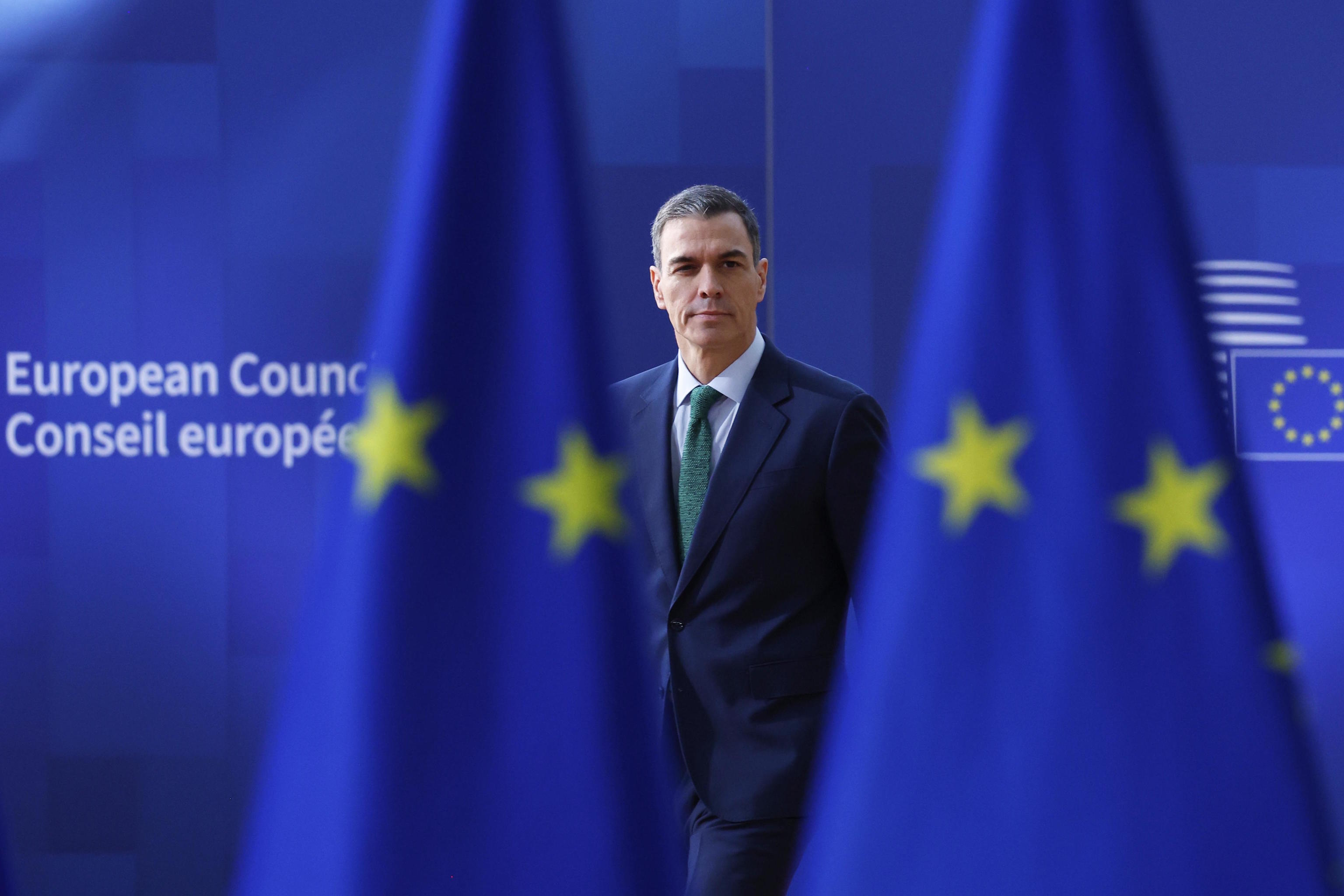"The anti-drone wall is essential." The phrase has been repeated in Brussels in recent days. In meetings with ambassadors and diplomats; in briefings on the priorities of the informal summit of Heads of Government taking place in Copenhagen tomorrow, followed by the meeting of the European Political Community also in the Danish capital on Thursday; and even from the European Commission.
The Commissioner for Defense and Space, Andrius Kubilius, already mentioned this last Friday from Helsinki after chairing a video conference with Defense ministers from different countries close to Russia and meeting with the Prime Minister of Finland. "It is an absolute priority," he pointed out, something shared by all countries most directly threatened by Vladimir Putin and who in recent weeks have been experiencing a wave of provocations and airspace violations.
During that same meeting with Kubilius, Prime Minister Petteri Orpo already sent a clear signal of what the Spanish Prime Minister, Pedro Sánchez, will encounter. "This is the eastern border of Europe, where Europe is defended, and since for 20 years we have shown financial solidarity with the countries of Southern Europe, now is the time to show solidarity in security matters," stated the Finn, who rejects financing the anti-drone wall with the SAFE program for European rearmament. "That would be considered a loan like any other, and European common funds would not be specifically allocated to reinforcing the eastern border of Europe," he added. And this demand, to ask more from the countries of Southern Europe and Spain in particular, is by no means the only one.
"There is clearly pressure on Spain. Mr. Sánchez's Defense obligations must be reminded," emphasizes a diplomatic source to EL MUNDO. In the EU capital, they also recall the incident that the Defense Minister, Margarita Robles, experienced last week when her plane flying near Kaliningrad recorded an attempt to disable its GPS. It did not escalate, and these types of situations may even be considered common, but in Brussels, they do believe it is a sign that all European countries are threatened by Russia and recall the statement made a few weeks ago by the Secretary-General of the North Atlantic Treaty Organization (NATO), Mark Rutte: "Russian missiles would only take a few minutes longer to hit Madrid than Tallinn, Berlin, or Paris."
But none of this seems to greatly disturb the Sánchez government. From Moncloa, they maintain that they are not aware of the increasing pressure to develop the anti-drone wall, while affirming that Spain's commitment to European security is unwavering. They cite the government's decision to join the NATO's Eastern Sentinel operation, which has already begun. "It is an unequivocal political signal," they continue, adding that the relationship with Orpo is very good. However, the debate goes beyond this, with Northern countries demanding more money, more resources. And that is not a topic Madrid wants to discuss.
The government will once again find itself in Copenhagen in a debate where it is not comfortable, not leading. In recent weeks, the government has focused its discourse on the situation in Gaza and condemning Israel, celebrating the suspension of the trade agreement proposed by the European Commission as its own achievement. But this measure requires approval by a qualified majority of countries, meaning it must be supported by 55% of nations and that the member states in favor of the proposal represent at least 65% of the total EU population.
Considering Germany's reservations, it seems unlikely that this situation will occur, and in any case, Gaza is not on the agenda of the presidents' meeting, although the agreement reached last night by Donald Trump and Benjamin Netanyahu will undoubtedly be very present in the Danish capital. The government will also want to bring up the issue for discussion and it is even possible that Sánchez will come with a proposal. But the concern of the always influential and persistent Northern countries is different.
